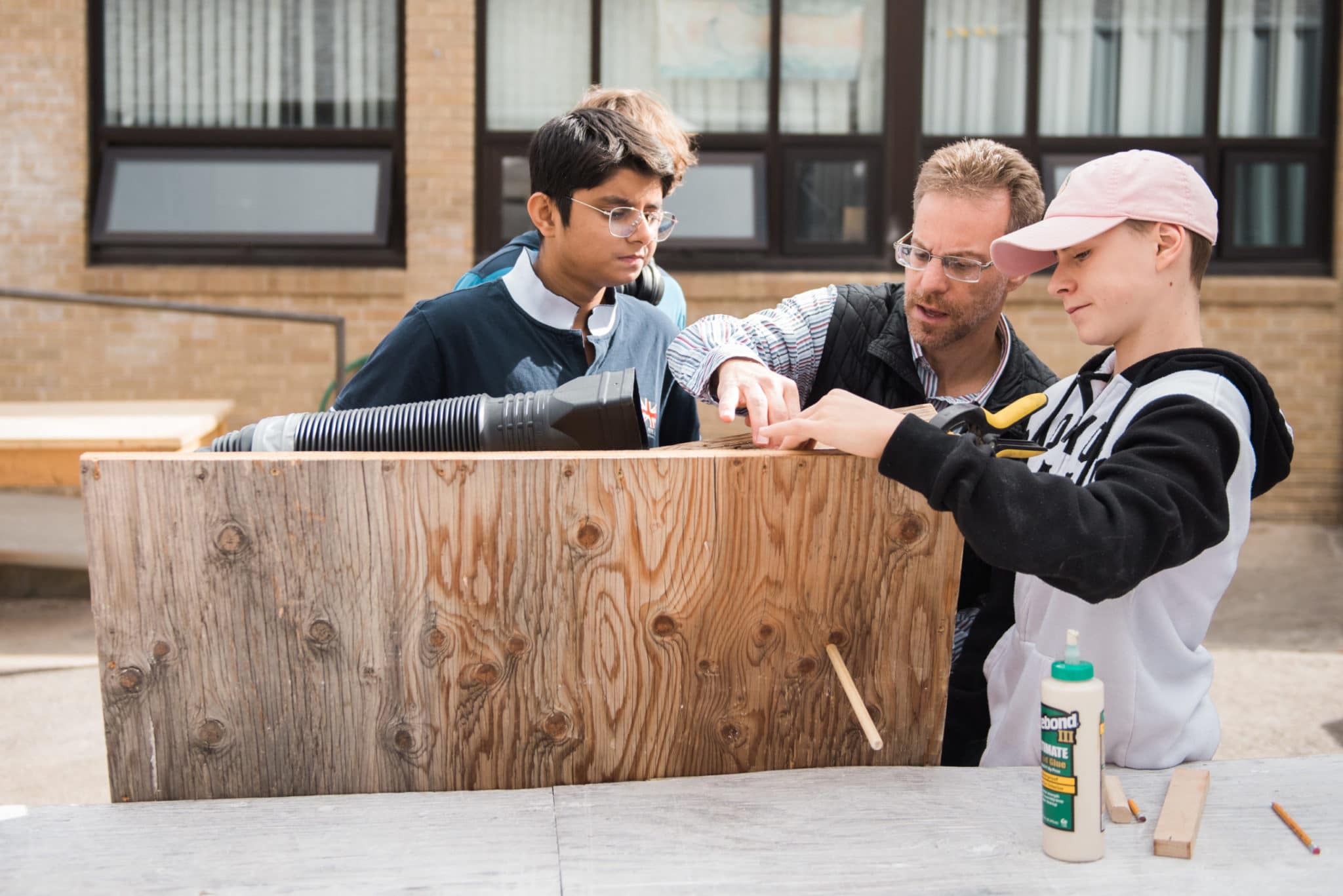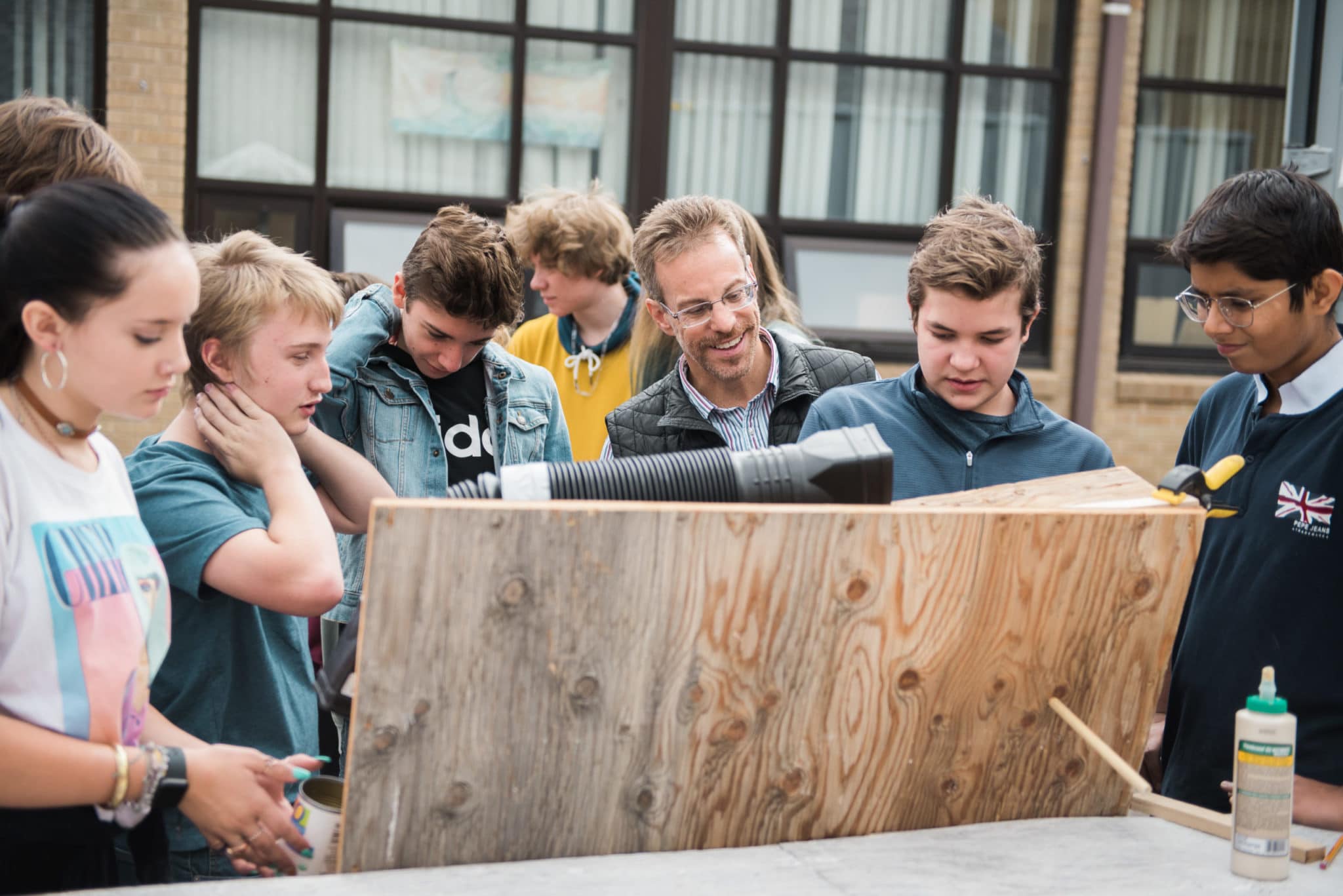
When our students are asked what they love about their education at The Denver Waldorf School, one answer we hear frequently is that they treasure their close relationships with teachers. They are full of gratitude to be surrounded by caring, dedicated, and inspiring teachers. Our Teacher Spotlight series highlights a new teacher each month.
Let’s get to know Dr. Wayne Mayer below.
What grades and subjects do you teach?
I teach the high school’s Life Science courses along with two electives, including:
Human Anatomy – 9th Grade
Organic Chemistry (9th Grade)
Human Physiology (10th Grade)
Acids, Bases, and Salts (10th Grade)
Acids, Bases, and Salts Lab (10th Grade)
Atomic Chemistry (11th Grade)
Atomic Chemistry Lab (11th Grade)
Botany (11th Grade)
Embryology (11th Grade)
Human Sexuality (11th Grade)
Biochemistry (12th Grade)
Planet Earth (12th Grade)
Zoology (12th Grade)
The Science of Simple Tools – elective
The Culture of Peru Through Food – elective
What is your educational background?
PhD, December 2006 Environmental Science & Policy Duke University, Durham, NC
Graduate Certificates: International Development Policy; Latin American and Caribbean Studies
MS, June 1994 Forestry & Ecology University of Washington, Seattle, WA
BA, June 1991 Environmental Science, cum laude, University of Denver, Denver, CO
Double Minors: Anthropology; English Literature
What was the next stop (or stops) in your journey before coming to The Denver Waldorf School?
I lived in Latin America where I worked as an educator, a journalist, a conservationist, a research scientist, and a sustainability and sustainable development consultant.
As a consultant, I led a wide range of clients in situations that were often complex, technical, contentious, multi-disciplinary, and involved varying numbers of people from small focus groups to large strategy summits. I guided clients to transform “Us vs Them” dynamics into “All of Us” alliances.
How many years have you taught at The Denver Waldorf School?
This is my first-year teaching at The Denver Waldorf School, but I have been teaching at the university level for over 25 years. From 1996 to 1998, I served as the Academic Director for the School for International Training (SIT) College Semester Abroad Program in Venezuela. Currently, I hold visiting faculty appointments at both the University of Denver and Duke University.
What drew you to the Waldorf curriculum?
I like the integrated, holistic approach to teaching and learning.
What is your teaching philosophy and approach?
The best learning—whether through formal and rigorous academics or informal and playful dialogue—occurs through what I call “fun with a purpose.” As the former Academic Director for the School for International Training’s College Semester Abroad Program in Venezuela, I know that communication through stories proves useful in field-based teaching and in communicating the concepts of biological conservation to communities and project participants. For example, if a student is listening to a story and is enthralled and laughing and then, suddenly, she realizes that this story is about the reproductive biology of a palm species or the mating habits of an endangered tree frog, she’ll likely think that learning about nature and science shouldn’t be this much fun. I aim for that reaction. I also strive to inspire students to ask the overarching questions: Why is that? Why does this matter? I address these questions at the onset of a block; then, throughout the course, I do my best to express my own excitement and interest in the subject at hand. Together, my students and I search for answers. In doing so, I hope to teach and to learn more about both the wonder of nature and the urgent need to conserve it.
The Waldorf philosophy of education focuses on the whole child. What does this mean to you?
Teaching the whole child means tapping into the student’s internal inspiration—understanding what motivates that child—and teaching and learning through an integrated combination of social, emotional, and academic connections. This triangulation of head, heart, hands or mind, body, spirit, means bringing art, nature and movement into the attraction, appeal and relevancy of learning.
What makes The Denver Waldorf School unique?
The enthusiastic teachers and administrators make The Denver Waldorf School a one-of-a-kind place to teach and learn.

Dr. Wayne Mayer pictured with students building a Rube Goldberg machine during the elective of “The Science of Simple Tools”.
